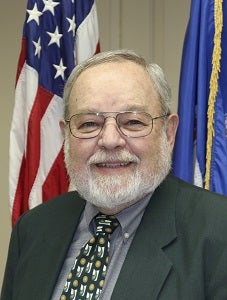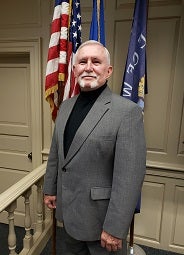Grice, Rosie to lead IW supervisors
Published 6:38 pm Wednesday, January 20, 2021
|
Getting your Trinity Audio player ready...
|
ISLE OF WIGHT
Isle of Wight County’s Board of Supervisors voted unanimously Jan. 7 to name Dick Grice of Smithfield as its chairman for 2021 and Don Rosie of Carrsville as vice chairman.
The board also adopted several changes to its bylaws, also by unanimous vote.
In past years, when board meetings had gone for five hours to 11 p.m., the bylaws had required board members to stop all discussion of the current agenda item and vote on whether to continue the meeting. That bylaw has now been changed to allow the board to finish the current agenda item, even if the discussion goes past 11 p.m., before it is required to vote on whether to address any further business or adjourn for the evening.
“So, basically, if you start one at 10:30, you can finish it without question, but you’re not going to take up another item unless a majority of the board agrees,” County Attorney Bobby Jones explained.
Another change, added at the request of Newport District Supervisor William McCarty, clarifies an existing bylaw barring board members from responding verbally to questions or concerns posed by citizens who sign up for public comments.
“I know oftentimes there may be a chance that someone may come to the podium that may have correct information, may not have correct information … and rather than any board member trying to give an answer that may either be confusing or in any way misleading, I think utilizing something like this where we can actually get back to a citizen with a concern in writing so we can answer all of their concerns precisely was a way to avoid some of that confusion,” McCarty said.
“I know we had a couple instances from the last 12 months, one that sticks in my mind is a person wanted to know why we were not speaking to them,” added Windsor District Supervisor Joel Acree. “They weren’t aware of our bylaws.”
The board could, however, still address a citizen’s concerns verbally that evening if a majority voted to do so, but delaying until a written response can be sent “avoids embarrassing situations where we don’t have all the information we need or we may be hearing it for the very first time, Rosie said.
The new bylaws also strike a requirement that committees of the board adopt a calendar of their meetings, since in practice they meet only as needed, and rescind a prohibition on board members voting to rescind an earlier vote on a land use decision involving a rezoning or conditional use permit. The language now permits such a vote “subject to applicable law.”
“A motion to rescind would not be in order if a rezoning permit has been approved and rights vested — that’s the applicable law,” Jones said. “But there are situations where a previous land use decision needs to be revised, and this would allow that.”
If the board does decide to rescind a land use decision, the new bylaws further permit it to do so without the matter needing to first go before the county’s Planning Commission.
The board’s use of a color-coded timer affixed to the boardroom’s lectern, which flashes yellow when speakers have one minute left and red when their time is expired, is also now codified for both citizens’ time and public hearing comments.
The board also discussed but ultimately did not adopt a bylaw change allowing meeting attendees who arrive after the time for citizens’ comments has ended — but still wish to address the board — to do so after the conclusion of all business that evening.
“What this is specifically geared toward is, say we’re past public comments, someone shows up and now they’re upset because they missed the public comment period – well, do we stop the whole meeting and reopen the public comments?” McCarty asked. “We don’t do that, but this at least allows an opportunity if someone comes in super-late to be included at the end of the meeting and not just simply told you can’t talk because you came in an hour late.”
Acree and Hardy District Supervisor Rudolph Jefferson, however, both expressed reservations about the idea — both concerning the possible creation of a second citizen comments section in a meeting that has been going on for hours and is about to adjourn.
“If a person has something that they really need to say to the board, they know what time the meeting starts; they know what time the public comments commence, and they should be here to present themselves,” Jefferson said.







